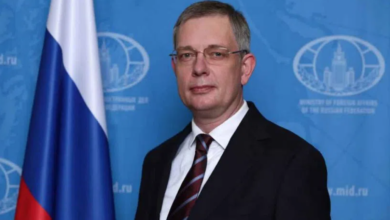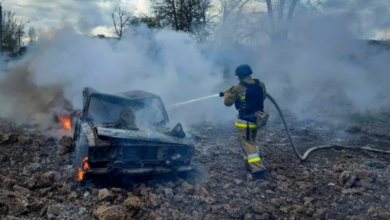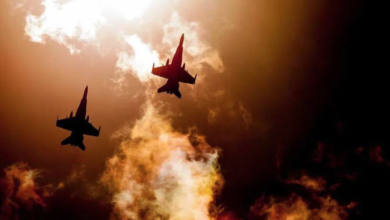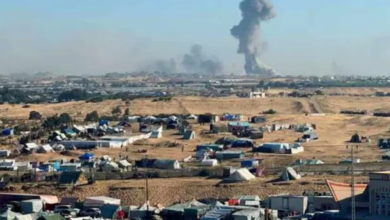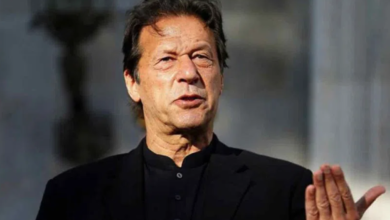‘Afghanistan’s Internal Matters’: Taliban Defends First Public Execution, Calls Outrage Reprehensible
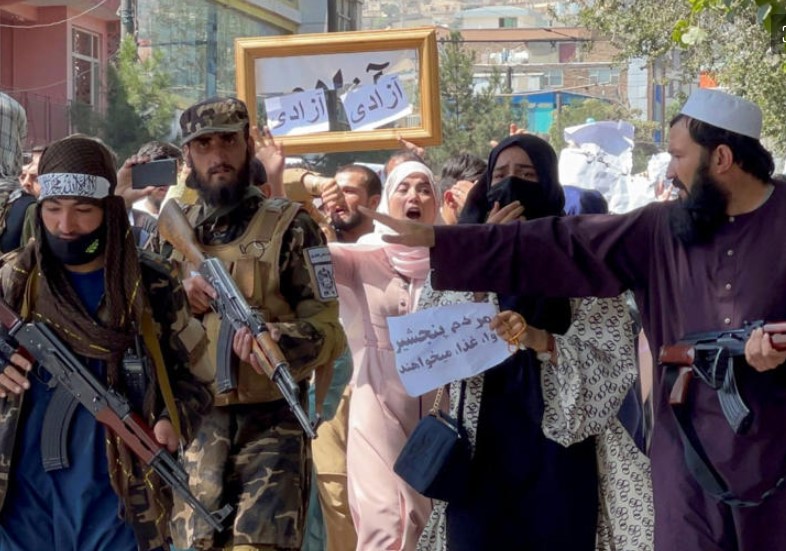
Amid outrage and criticism over the execution, the Taliban defended its action and said that it was an internal affair of the country and termed the international condemnation as ‘reprehensible’.
Taliban spokesperson Zabihullah Mujahid in a statement said that their action was criticised due to a lack of information about Islam and Afghanistan. He stressed that 99 per cent of the people in Afghanistan are Muslim.
Mujahid’s statement comes after US and United Nations criticised the Taliban for the public execution of a man convicted of murder on Wednesday, the first official killing since the hardline Islamists returned to power, news agency ANI reported.
The Taliban spokesperson said that they have made many sacrifices for enforcing Islamic laws in Afghanistan. Defending the public execution, Mujahid said that death penalties were “given all around the world,” including America and Europe.
“The fact that Afghanistan is being criticized for applying Islamic sentences shows that some countries and organizations have either insufficient knowledge or have problems with Islam, respecting Muslims’ beliefs and laws,” Zabihullah Mujahid reportedly said.
“This action is an interference in the internal affairs of countries and is reprehensible,” he added.
A previous statement named the executed man as Tajmir, son of Ghulam Sarwar, and said he was a resident of Anjil district in Herat province.
It said Tajmir had murdered a man, and stolen his motorcycle and cell phone.
Last month, Taliban supreme leader Hibatullah Akhundzada ordered judges to fully enforce aspects of Islamic law that include public executions, stonings and floggings, and the amputation of limbs from thieves.
They have carried out several public floggings since then, but Wednesday’s execution in Farah — capital of the western province of the same name — is the first the Taliban have acknowledged.
UN Secretary-General Antonio Guterres voiced “deep concern” about the public execution, spokeswoman Stephanie Tremblay said.
“Our position has never changed. The United Nations is against the death penalty… So we call for a return to the moratorium on the death penalty” in Afghanistan, she said.
US State Department spokesman Ned Price said “despicable” public executions break Taliban promises to the world.
“This indicates to us that the Taliban seek a return to their regressive and abusive practices of the 1990s,” Price said.
Severe restrictions
The Taliban regularly carried out punishments in public during their first period of rule that ended in late 2001, including floggings and executions at the national stadium in Kabul, which Afghans were encouraged to attend.
The hardline Islamists had promised a softer rule this time round, but have introduced increasingly severe restrictions on the lives of Afghans.
Women in particular have been incrementally squeezed out of public life since the Taliban’s return.
Those in government roles have lost their jobs — or are being paid a pittance to stay at home — while women are also barred from travelling without a male relative, and must cover up with a burqa or hijab when out of the home.
Schools for teenage girls have also been shuttered across most of the country for over a year.
Mujahid said the case for Wednesday’s execution had been thoroughly examined by a series of courts before the supreme leader gave the order.
“This matter was examined very precisely,” he said in the statement. “In the end, they gave an order to apply the Shariah law of retribution to the murderer.”
Akhundzada, who has not been filmed or photographed in public since the Taliban returned to power in August 2021, rules by decree from Kandahar, the movement’s birthplace and spiritual heartland.
The statement included the names of dozens of court officials as well as other Taliban representatives as being present for the execution.
(With inputs from AFP)

